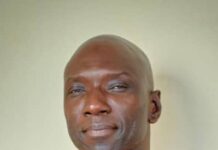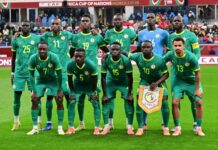By Alfsoninke
The UDP has held press briefings recently, and repeated allegations of “electoral malpractice” and “corrupt practices” in the presidential election on December 4, 2021.
When the party first addressed the press on the allegations in January 2022, it promised to share its evidence with the public “over the coming weeks”.
This was after the UDP submitted its election petition at the Supreme Court (SC) which, in a decision delivered on 28 December, “threw out the case based on technicalities”.
The UDP soon after – within the 15 days stipulated by the SC rules – returned to the court and submitted another motion asking to be allowed to apply for the apex court to review its decision of December 28.
At the time, TAT in an editorial did ask the following question: “Will Supreme Court revisit ruling on UDP Petition?”
The Court Act and rules provide for such review on the grounds of “an exceptional circumstance which have resulted in a miscarriage of justice.”
When it asked the court to revisit its ruling, as TAT reported earlier, the UDP said there was
“sufficient grounds to warrant leave of the court to bring a substantive application for review.”
It wanted this granted “in the interest of a fair hearing in order to avert a gross miscarriage of justice”.
Counsel for the UDP made a submission that “the court has inadvertently made fundamental errors in striking out the petition on the grounds of non-adherence got Rule 11.”
Counsel added that the cases cited and relied upon by the court “no longer reflect progressive international human rights law on the interpretation of election petition rules.”
Counsel further stated that the court “deprived the petitioner of its constitutional right to challenge the election, even though the petitioner had already filed its evidence as ordered by the court.
“It thereby also deprived the petitioner of its fundamental rights to a fair hearing and, by extension, the political rights of its supporters conferred by the constitution.”
It is on record that the court, again, denied the UDP request, and we are yet to read the SC explanation and justification it gave the second time.
It was the end of the road for the UDP in terms of exhausting local remedies, when the SC for the second time dismissed the UDP motion.
However, it would be enlightening to see – where the matter is to come before the ECOWAS or AU courts or the Judicial Committee of the Privy Council in London – if their decision will be different from the Gambian SC ruling. Food for thought, eh?
What is clear, however, is that we do not have a Kenya Chief Justice David Maraga type of Supreme Court in The Gambia!
“…Other elections in Africa have been annulled or canceled – as in Nigeria where Abiola’s election win was annual (this addition is mine) – but this appears to be the first time on the continent that an opposition court challenge against a presidential poll (in Kenya held on 8 August 2017) result has been successful” – from the BBC reporting at the time.
Consequently, the UDP since January has put the evidence it gathered in the public domain, that is, released it to the court of public opinion.
Definitely, an informed and knowledgeable public offers, no doubt, one of the best protection for the health of our democracy.
Indeed, that the UDP submits its case to the public is important; the information and data shared give analysts the material they need to make an independent judgment on the December 4 election.
Crucially, this public includes the election observers, local and international, who now have information to compare with their own findings and to inform their work as observer missions in the forthcoming National Assembly and Local Government elections, in April 2022 and 2023 respectively.
UDP at its press briefing on Friday 4 March also came out asserting that the IEC was “complicit” and “an accomplish” in alleged electoral malpractices by the NPP.
The EU election observers in their final report noted that the NPP presidential candidate Adama Barrow enjoyed the advantages of incumbency and had abused his incumbency and that this affected the outcome of the election.
As for the IEC, the EU election observers in their report highlighted, among others, the IEC’s failure to adopt its earlier recommendations to ensure that its operations are in line with international standards and best practices.
Thus we see that these observations do lend credence to the UDP’s claim that by not allowing the matter to proceed, the SC had denied it a fair hearing and justice, as required by the constitution.
The question then arises – Can the SC judges in good conscience live with the allegations and findings in the public domain?
Can the SC judges be comfortable with the knowledge that their peers and jurists, local and international, with all the evidence in the public domain will now examine all the evidence and make their own judgment?
Of course, we all are aware of the weaknesses/imperfections and fallibility of human judicial processes.
For instance, the motion submitting the original UDP Election Petition did list the IEC as a respondent; and, had the SC proceeded to hear the petition, the IEC database could have been examined to verify the UDP’s allegations relating to voter registration.
Over the weekend (on Saturday 12 March), the UDP circulated online the following: “The United Democratic Party would like to share some examples of randomly selected names and photos of people registered by the IEC in Jambanjelly after the official gazetted dates and times for the presidential election registration process.
“While registrations were from the 29th May to 12th June as per the IEC roster, names on this list were registered from the 14th of June onwards…”
Thus, seeing that the evidence is in the public domain, we again ask – can the SC judges live with a clear conscience, knowing that posterity, including scholars of jurisprudence among others, will in future examine the public record and make their own judgment?






